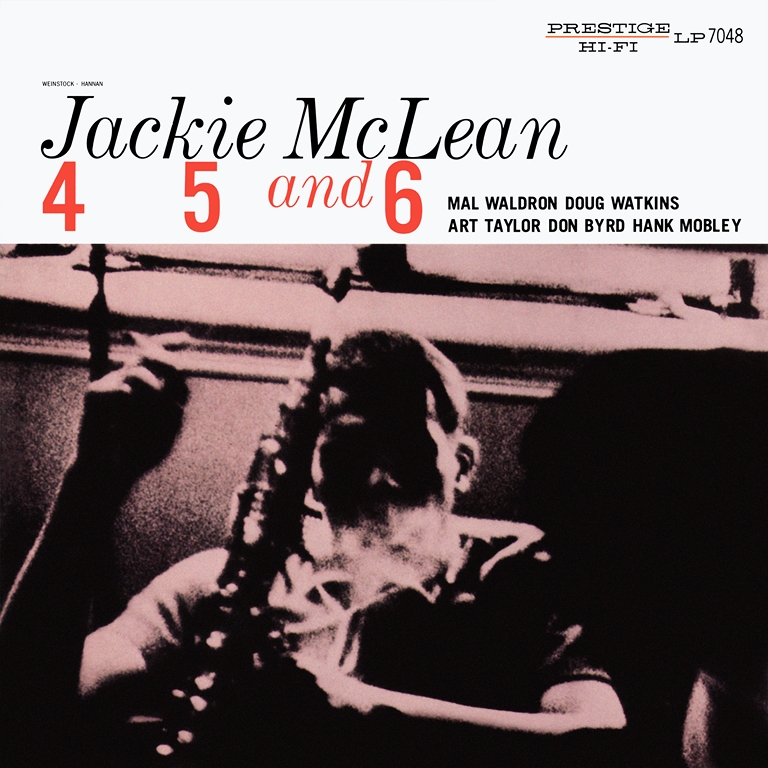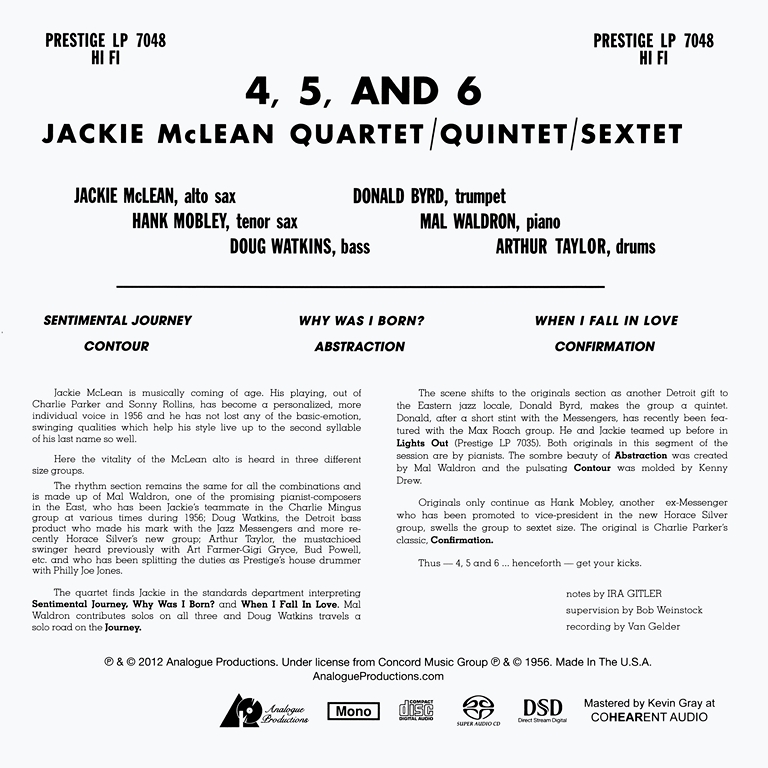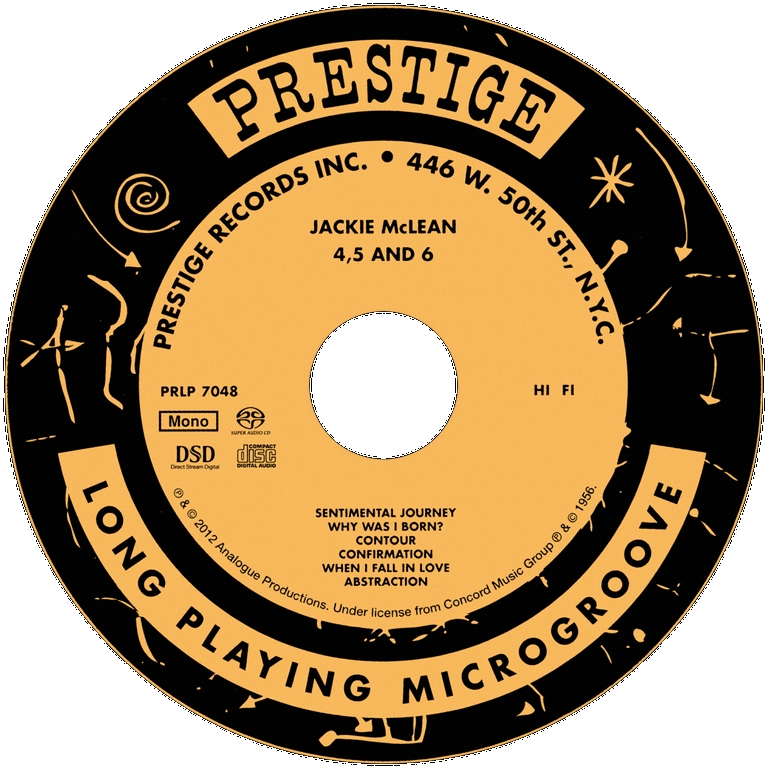


Jackie McLean – 4, 5 and 6 (1956)
Analogue Productions Prestige Mono Remasters series
Studio album by Jackie McLean
Released 1956
Recorded July 13 & 20, 1956
Van Gelder Studio, Hackensack
Genre Jazz, Hard bop[1]
Length 45:18
Label Prestige
PRLP 7048
Producer Bob Weinstock
4, 5 and 6 is a studio album by saxophonist Jackie McLean, his second effort for Prestige Records. It was recorded in 1956 and originally released the same year as PRLP 7048. In 1962, it was reissued on the Prestige sub-label New Jazz Records as NJ 8279 with a different cover.
Track Listing
1. “Sentimental Journey” Homer, Green, Brown 10:00
2. “Why Was I Born?” Kern, Hammerstein 5:16
3. “Contour” Kenny Drew 5:01
4. “Confirmation” Parker 11:26
5. “When I Fall in Love” Heyman, Young 5:36
6. “Abstraction” Mal Waldron 7:59
Recorded on July 13 (#1-3) and 20 (#4-6), 1956.
Personnel
Jackie McLean – alto sax
Hank Mobley – tenor sax (#4-6)
Donald Byrd – trumpet
Mal Waldron – piano
Doug Watkins – bass
Art Taylor – drums
“About a month or so later I took my band into Birdland. I had Sonny Rollins, Kenny Drew, Art Blakey, Percy Heath, and Jackie McLean. Bud Powell had told me that I ought to use Jackie because he knew Jackie and was high on him. I had seen Jackie around because he came from Sugar Hill up in Harlem….Jackie wasn’t even twenty when he made that Birdland gig. But he could already play his ass off. That first night, he was so scared and high that after playing about seven or eight bars on his solo, he suddenly ran off the stage and out the back door. Now, the rhythm section is still playing, and the crowd’s out there with their mouths open, wondering what the fuck is going on. I left the bandstand to go back and see what happened to Jackie, although in the back of my head I’m thinking that he might have become sick from heroin, because I already knew that Jackie was using. Oscar Goodstein, the owner of Birdland, follows me outside. There’s Jackie puking his brains out into a garbage can, vomit all over his mouth. I asked him if he was all right and he nodded his head that he was. I told him to wipe off his horn and come on back and play. We could hear the rhythm section still walking. Oscar’s standing there with this disgusted look all over his face and says to Jackie as he’s passing him, “Here, kid, wipe your face,” and he threw him this towel and turned and walked back into the club ahead of us. Jackie went back in there and played his ass off. I mean, he was something that night.”
In spite of Jackie’s misadventure — Miles claims that this 1951 appearance was McLean’s first public performance — his is an unfailingly inspiring story. Like Sonny Rollins, he recovered from heroin addiction (as Miles tells it in his autobiography, Jackie was his “main running buddy” during his “worst junkie years”) and lived a long, fruitful, and (from my perspective) immensely giving life: his involvement with and support of the University of New Hampshire’s Hartt School of Music, for example, was laudable. Jackie’s was a great — nay, an inspiring– story; that of Donald Byrd — who plays trumpet on this record — is even more awesome. Like, literally awesome: Byrd has taught at Rutgers, NYU, Howard, Queens College, Oberlin, and Cornell; he has a JD from Columbia University Law School and a PhD from Columbia’s Teachers College. We tend to focus on the Attic tragic aspect of Jazz-dom: the tragic story arcs of the Charlie Parkers, Billie Holidays, and Fats Navarros; or the not-explicitly-drug-related, but nonetheless tragic, deaths of the Clifford Browns and Scott Lafaros. But a lot of these guys survived and thrived.
